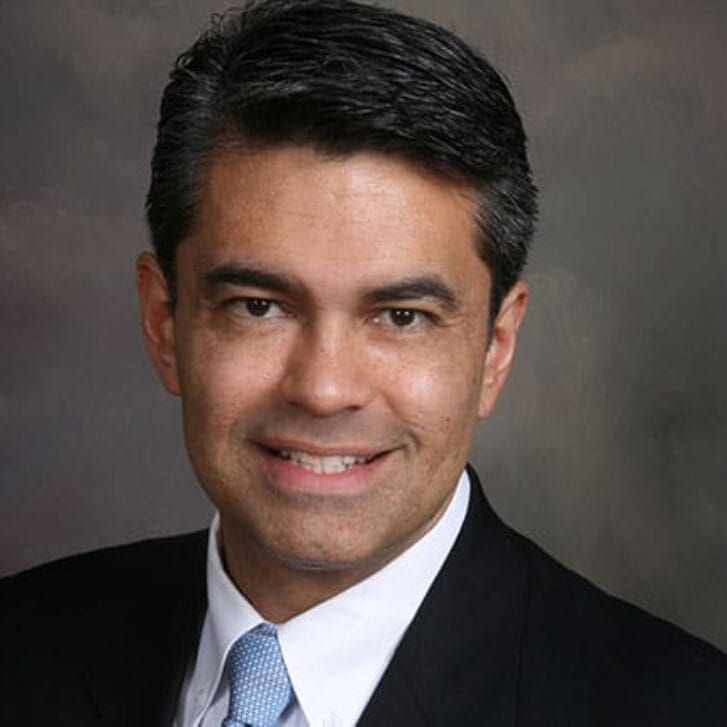Earlier this month, about 100 Penn students squeezed into a large conference room in Huntsman Hall to catch a glimpse of Carly Zakin C08 and Danielle Weisberg, CEOs and co-founders of the popular media company, The Skimm. What was surprising wasn’t the size of the crowd at the event, co-hosted by Penn Wharton Entrepreneurship and the Annenberg School for Communication, but the percentage of attendants who said they subscribed to the Skimm’s email service—by a show of hands, only one student admitted to not having read Zakin and Weisberg’s news bites.
The Skimm caters to female millennials with Daily Skimm, a newsletter containing seven or eight important news pieces of the day delivered in snappy clear language each morning. Their goal, said Zakin, was to help people without deep expertise in politics, finance, or other current events to speak confidently about those topics. “As a liberal arts major, I never thought that I would be in front of a Wharton classroom,” said Zakin, “and that is exactly the problem that we are trying to solve.”
The founders entered their career in the midst of the great recession, which hit the media industry particularly hard. “We watched every news division we had worked or interned in close and shutter,” Zakin said. “Not even ours bosses wanted their jobs anymore.” So the two news junkies quit their jobs as producers for NBC News with a cumulative $4000 in cash and a handful of credit cards. “We made the decision to bootstrap,” said Weisberg, “which is the elegant term for being poor.”
They started brainstorming and the ideas flowed. “We would have won a newlywed contest,” said Zakin of their rapport. “We literally sat down and independently put together identical voices for the newsletter.” As to the decision to use email, said Weisberg, “We had no idea how else we could do it. We literally thought that we would just BCC everyone on the list every day,” said Weisberg. The company obtained its first 100,000 subscribers the old-fashioned way: flyering on Locust Walk, soliciting email sign ups at Starbucks, putting up notices in the bathrooms of Equinox (and as a result, getting kicked out of Equinox). Today the Skimm boasts more than five million subscribers, and its founders have paid off their credit card debt. They raised more than $6 million in 2014 from RRE Ventures and Greycroft Partners, and an additional $8 million last year from 21st Century Fox and The New York Times.

Left to right: Clare Leinweber, managing director of Penn Wharton Entrepreneurship; Danielle Weisberg; Ken Winneg, managing director of survey research at the Annenberg Public Policy Center; and Carly Zakin C08.
The secret ingredient in the Skimm’s recipe for success is its loyal customer base. “Buzzfeed is great, but we are not Buzzfeed,” said Weisberg. “We don’t want 100 million viewers who don’t have a connection to our brand. We’d rather have five million who can’t start their day without one of our products.” The company has channeled its intense customer loyalty into the “Skimm’bassador” program—20,000 subscribers who receive merchandise and exclusive networking opportunities for referring friends and acquaintances to the site. The Skimm’s competitors have tried to emulate its customer loyalty model: The Hustle, a business newsletter that caters to millennial men, raised $300,000 in 40 hours from their subscribers in a round of seed funding. But the Skimm’s success has been hard to reproduce. The Hustle has about 300,000 subscribers, and Lenny, a newsletter also focused on female millennials, has a little more than 500,000 subscribers.
Zakin and Weisberg are betting on a resurgence of e-communications for increased ad revenue. Although Google and Facebook account for 85 percent of every new dollar spent in online advertising, smaller players with a strong connection to their customers fill a niche. “Once someone trusts you,” Zakin said, “it is easy to say ‘Try this wine’ or ‘Get an insurance policy from this provider.’” The Skimm is not profitable yet, but is strengthening its subscription service, adding video to its repertoire, and forming strategic alliances with other media companies. Zakin and Weisberg have become media darlings themselves, making the rosters of Forbes’ “30 Under 30,” Fortune’s “40 Under 40,” and Vanity Fair’s “The Next Establishment.” Along with their extraordinary commercial success, the founders recognize their responsibility as an editorial voice in this complex media age. “Four years ago our goal was not to be the nonpartisan new source of this generation,” said Weisberg. “But we have an audience that is choosing between us and fake news, so we have now assumed the responsibility of being their primary source of news.”


























